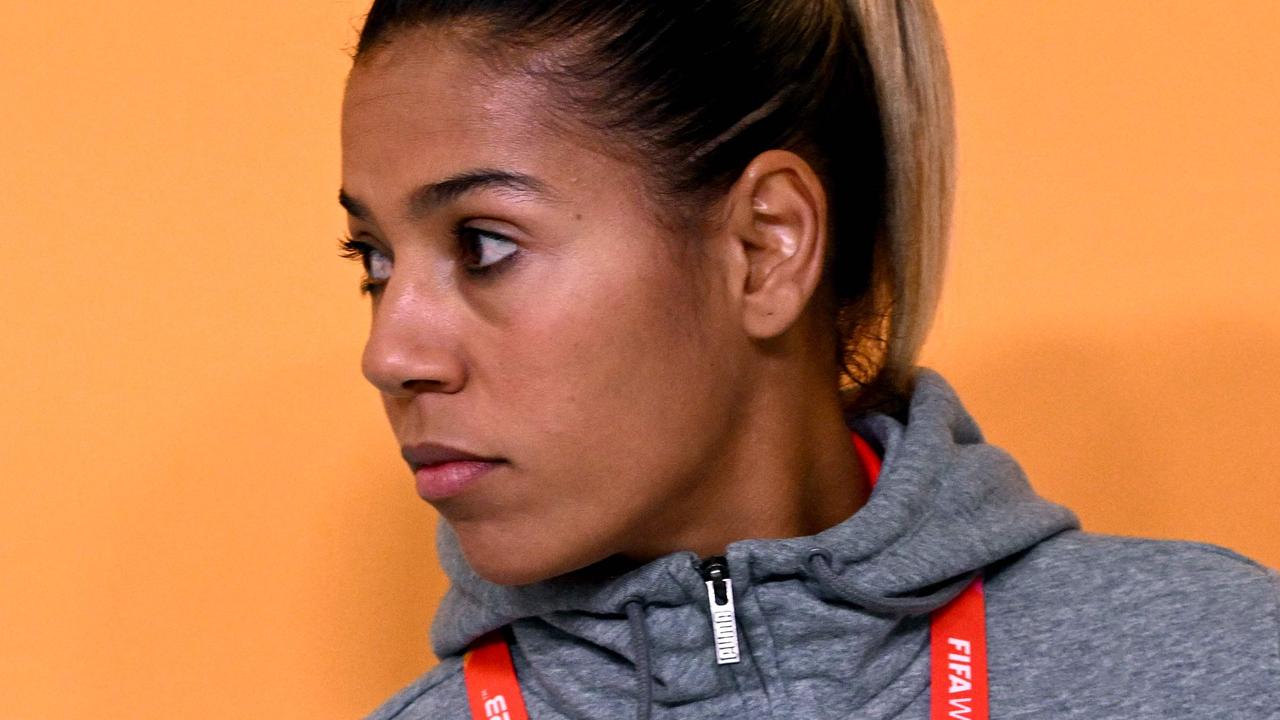[ad_1] The BBC has apologised for an “inappropriate” question one of its reporters asked during a media conference with the captain of Morocco’s wom
[ad_1]
The BBC has apologised for an “inappropriate” question one of its reporters asked during a media conference with the captain of Morocco’s women’s football team.
Ghizlane Chebbak, 32, is leading Morocco at the World Cup in Australia and New Zealand. She spoke to reporters before her team’s opening match against Germany on Monday, which it ended up losing 6-0.
“In Morocco, it’s illegal to have a gay relationship. Do you have any gay players in your squad, and what is life like for them in Morocco?” the BBC reporter asked her.
That sparked an intervention from the moderator: “Sorry, this is a very political question. So we’ll just stick to questions relating to football.”
The reporter objected, insisting the question was “not political”.
“It’s about people. It’s got nothing to do with politics. Please let her answer the question,” the reporter said. But the press conference moved on and ended a short time later.
Moroccan law criminalises what it calls “sexual deviancy” between members of the same sex, with homosexual relationships punished by fines or up to three years in prison.
In a statement to CNN afterwards, BBC acknowledged the question crossed a line.
“We recognise that the question was inappropriate. We had no intention to cause any harm or distress,” the British broadcaster said.
Other reporters who took part in the media conference agreed it was inappropriate, because Chebbak could have placed herself or her teammates at risk by answering.
“I was at this press conference. The reporter was completely out of line,” said Shireen Ahmed, of CBS Sports.
“Harm reduction matters, and posing the question to the captain or coach was unnecessary. The question was waved off by a FIFA media officer moderating, but it shouldn’t have been asked.
“Asking a player about her teammates and whether they are gay, and how it affects them, when you know it is not permissible is bizarre and out of line. The captain cannot out players, not comment on policy, because it could be dangerous for them.”
She argued the question “reeked of privilege” from someone who should have “known better”, and she’d told the BBC journalist as much “emphatically”.
“Understanding context and struggles from marginalised communities matters,” she said.
“This isn’t an issue of journalistic freedom. You can inquire about social laws in different places without endangering people.
“Journalists have an obligation to be fair, accurate and to practise with care. If reporting harms someone, it is not only unethical but dangerous.”
Steph Yang, a reporter with The Athletic, offered a similar critique of the question.
“From a harm reduction perspective, this is not an appropriate question for a player and would have endangered the players themselves,” Yang said.
“We are obviously going to talk about the intersection of politics and sport at this World Cup, and it’s vital to do so. But we should take care that our questions don’t cause further harm to those impacted by those very politics.”
In October of 2019, Morocco’s National Human Rights Council recommended changes to the country’s laws to decriminalise same-sex, unmarried and adulterous relationships, all of which carry possible prison terms. The government rejected those recommendations.
According to Human Rights Watch, gay and bisexual people in Morocco have been targeted by a campaign of online harassment in recent years, with opponents of LGBTQ rights going on dating apps and then “outing” them without their consent.
“For lesbian, gay, bisexual and transgender people, this may lead to ostracisation by their family and community, expulsion from housing by relatives and landlords, and dismissal from their jobs,” the group warned. There is also a risk of physical harm or prosecution.
“The consequences of ‘outing’ can be detrimental to LGBT people’s livelihoods, safety and mental health,” said Graeme Reid, the director for lesbian, gay, bisexual and transgender rights at the organisation.
“The Moroccan authorities should immediately step in to protects LGBT people’s privacy and repeal anti-LGBT laws that can only fuel this homophobic behaviour.
“The onus is on the Moroccan government to protect LGBT people from this type of homophobic harassment and from all forms of discrimination.
“Homophobia is a dangerous reality, but it thrives when the government criminalises same-sex conduct and fails to shield their rights to privacy and equal treatment.”
[ad_2]
Source link



COMMENTS